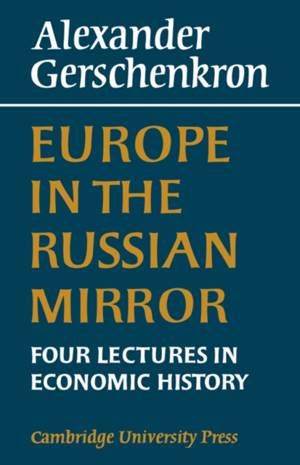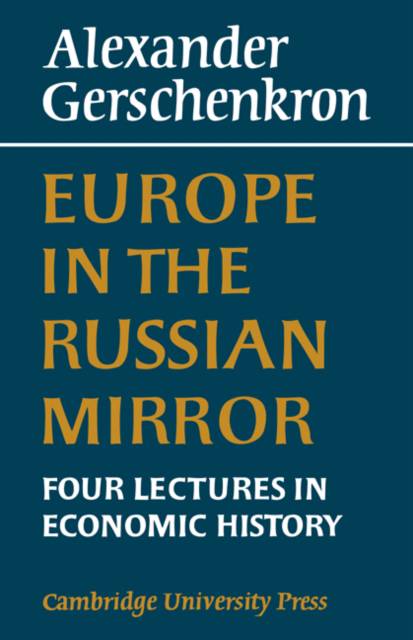
- Afhalen na 1 uur in een winkel met voorraad
- Gratis thuislevering in België vanaf € 30
- Ruim aanbod met 7 miljoen producten
- Afhalen na 1 uur in een winkel met voorraad
- Gratis thuislevering in België vanaf € 30
- Ruim aanbod met 7 miljoen producten
Zoeken
Europe in the Russian Mirror
Four Lectures in Economic History
Alexander Gershenkron, Alexander Gerschenkron
Paperback | Engels
€ 60,95
+ 121 punten
Omschrijving
First published in 1970, Professor Gerschenkron's theme is the contribution which the study of Russian economic history can make to the problems which have preoccupied Western historians. He first considers the way in which the case of the old Believers in Russia, who refused to support the official church but played an important entrepreneurial role in nineteenth-century economic development, bears upon Max Weber's celebrated thesis on the relations between the Protestant ethic and the spirit of capitalism. In the course of his discussion, Professor Gerschenkron provides important information on the doctrinal beliefs of this group, their social status and the extent to which they were persecuted and discriminated against by the State. His conclusion is that the persecution certainly afforded sufficient impulse to engage in profitable activities and to develop the traits Weber considered as specific features of the 'capitalist' spirit.
Specificaties
Betrokkenen
- Auteur(s):
- Uitgeverij:
Inhoud
- Aantal bladzijden:
- 176
- Taal:
- Engels
Eigenschappen
- Productcode (EAN):
- 9780521083904
- Verschijningsdatum:
- 14/10/2008
- Uitvoering:
- Paperback
- Formaat:
- Trade paperback (VS)
- Afmetingen:
- 140 mm x 216 mm
- Gewicht:
- 231 g

Alleen bij Standaard Boekhandel
+ 121 punten op je klantenkaart van Standaard Boekhandel
Beoordelingen
We publiceren alleen reviews die voldoen aan de voorwaarden voor reviews. Bekijk onze voorwaarden voor reviews.











